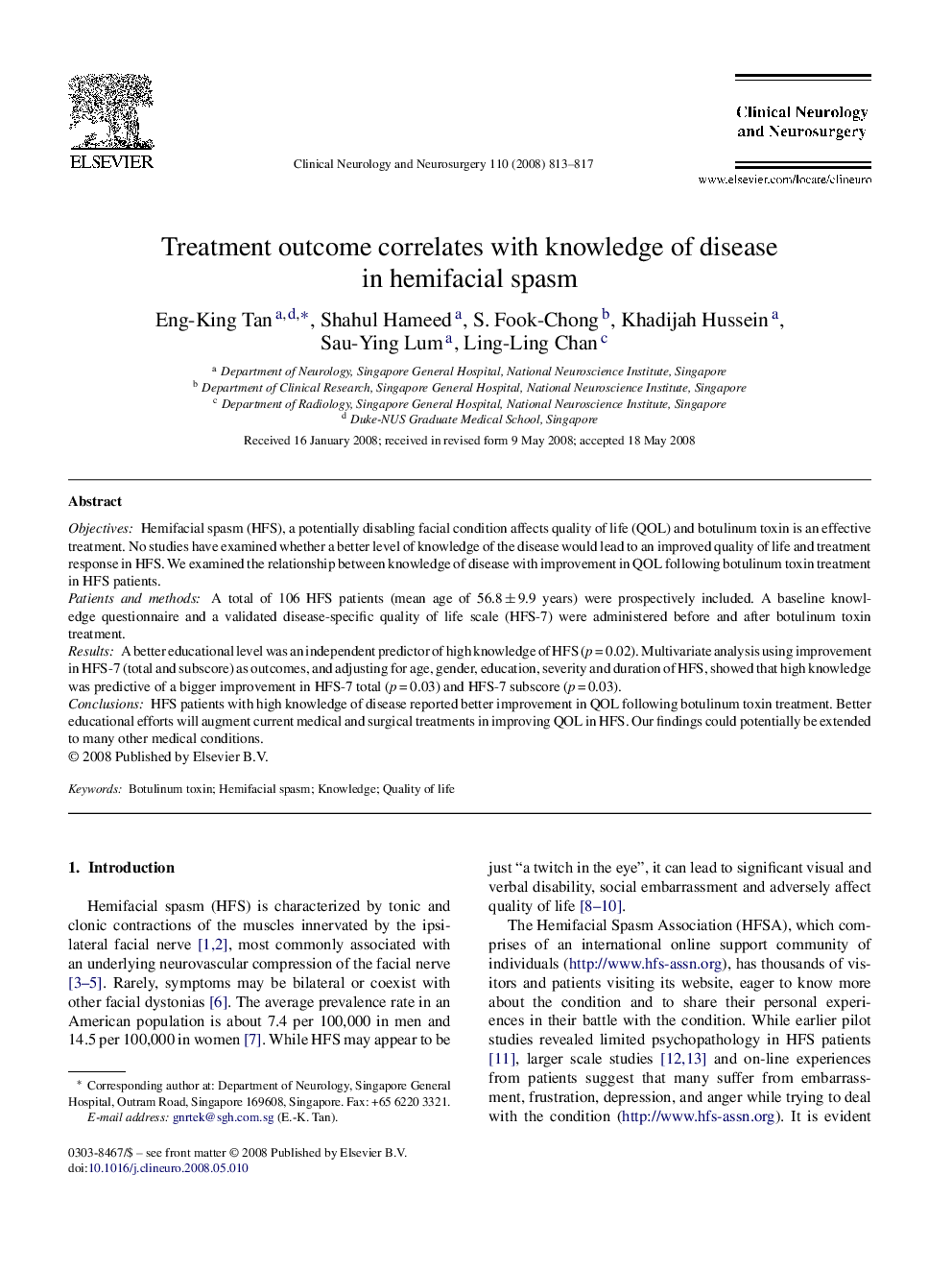| Article ID | Journal | Published Year | Pages | File Type |
|---|---|---|---|---|
| 3041865 | Clinical Neurology and Neurosurgery | 2008 | 5 Pages |
ObjectivesHemifacial spasm (HFS), a potentially disabling facial condition affects quality of life (QOL) and botulinum toxin is an effective treatment. No studies have examined whether a better level of knowledge of the disease would lead to an improved quality of life and treatment response in HFS. We examined the relationship between knowledge of disease with improvement in QOL following botulinum toxin treatment in HFS patients.Patients and methodsA total of 106 HFS patients (mean age of 56.8 ± 9.9 years) were prospectively included. A baseline knowledge questionnaire and a validated disease-specific quality of life scale (HFS-7) were administered before and after botulinum toxin treatment.ResultsA better educational level was an independent predictor of high knowledge of HFS (p = 0.02). Multivariate analysis using improvement in HFS-7 (total and subscore) as outcomes, and adjusting for age, gender, education, severity and duration of HFS, showed that high knowledge was predictive of a bigger improvement in HFS-7 total (p = 0.03) and HFS-7 subscore (p = 0.03).ConclusionsHFS patients with high knowledge of disease reported better improvement in QOL following botulinum toxin treatment. Better educational efforts will augment current medical and surgical treatments in improving QOL in HFS. Our findings could potentially be extended to many other medical conditions.
